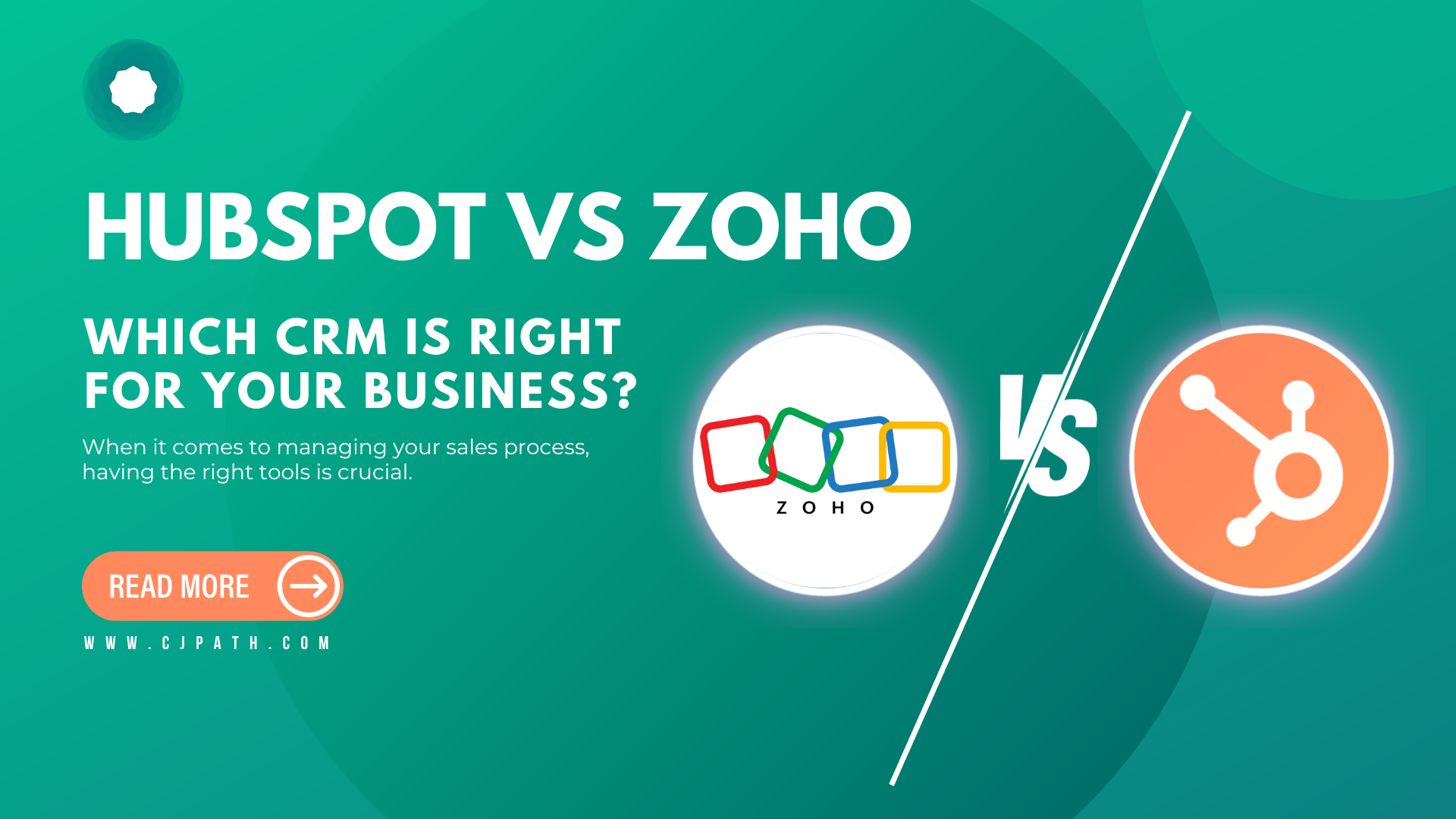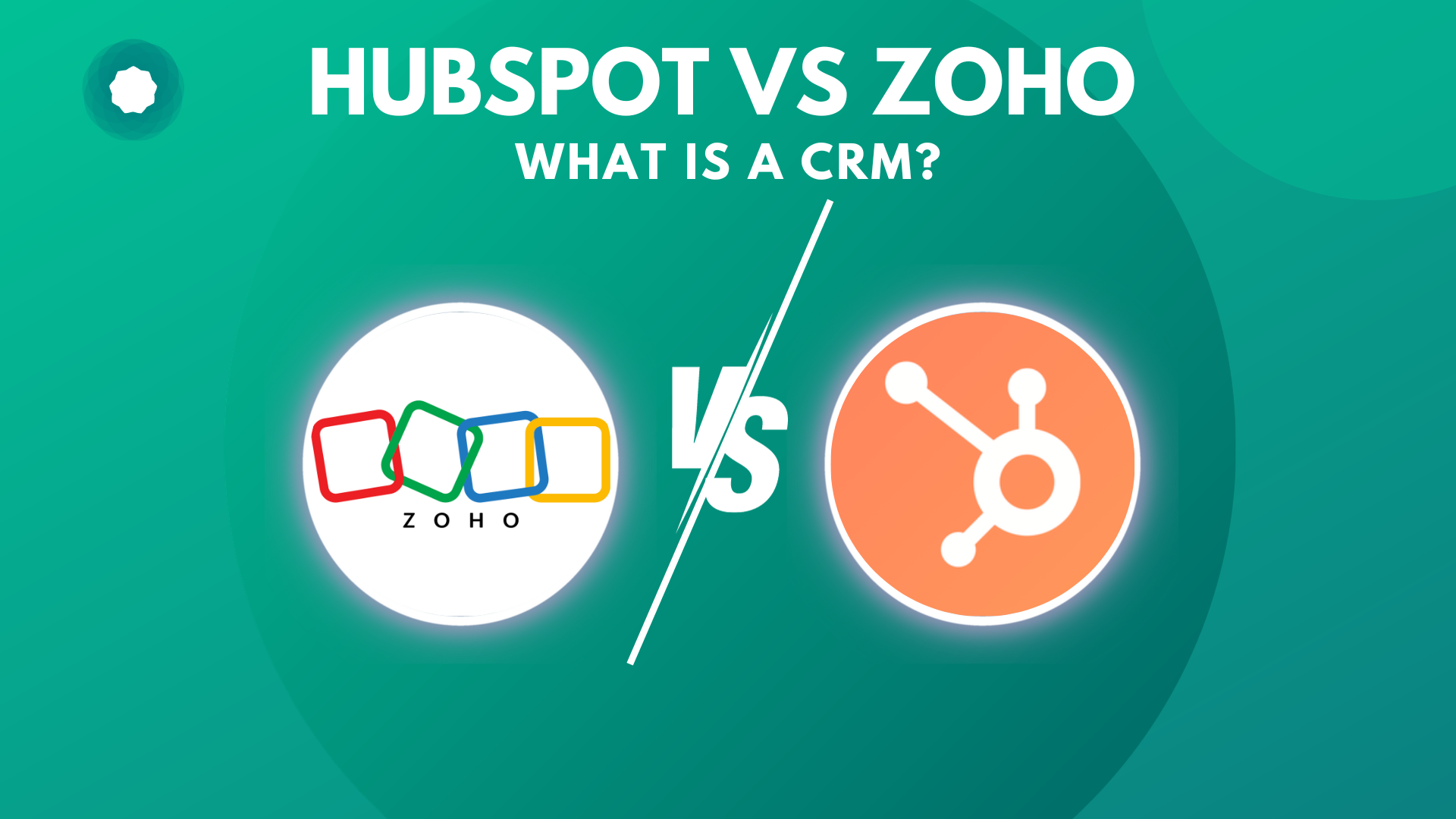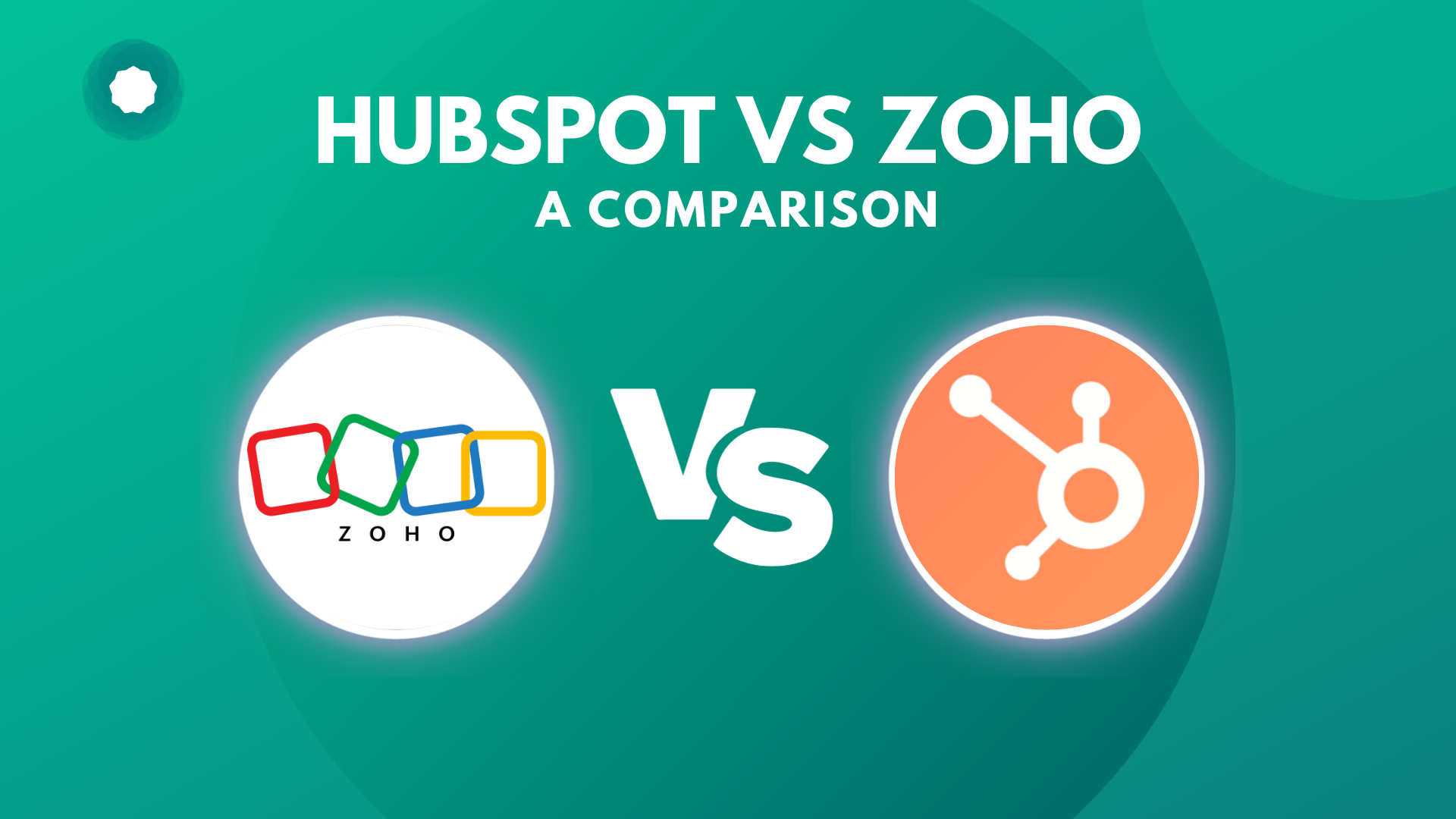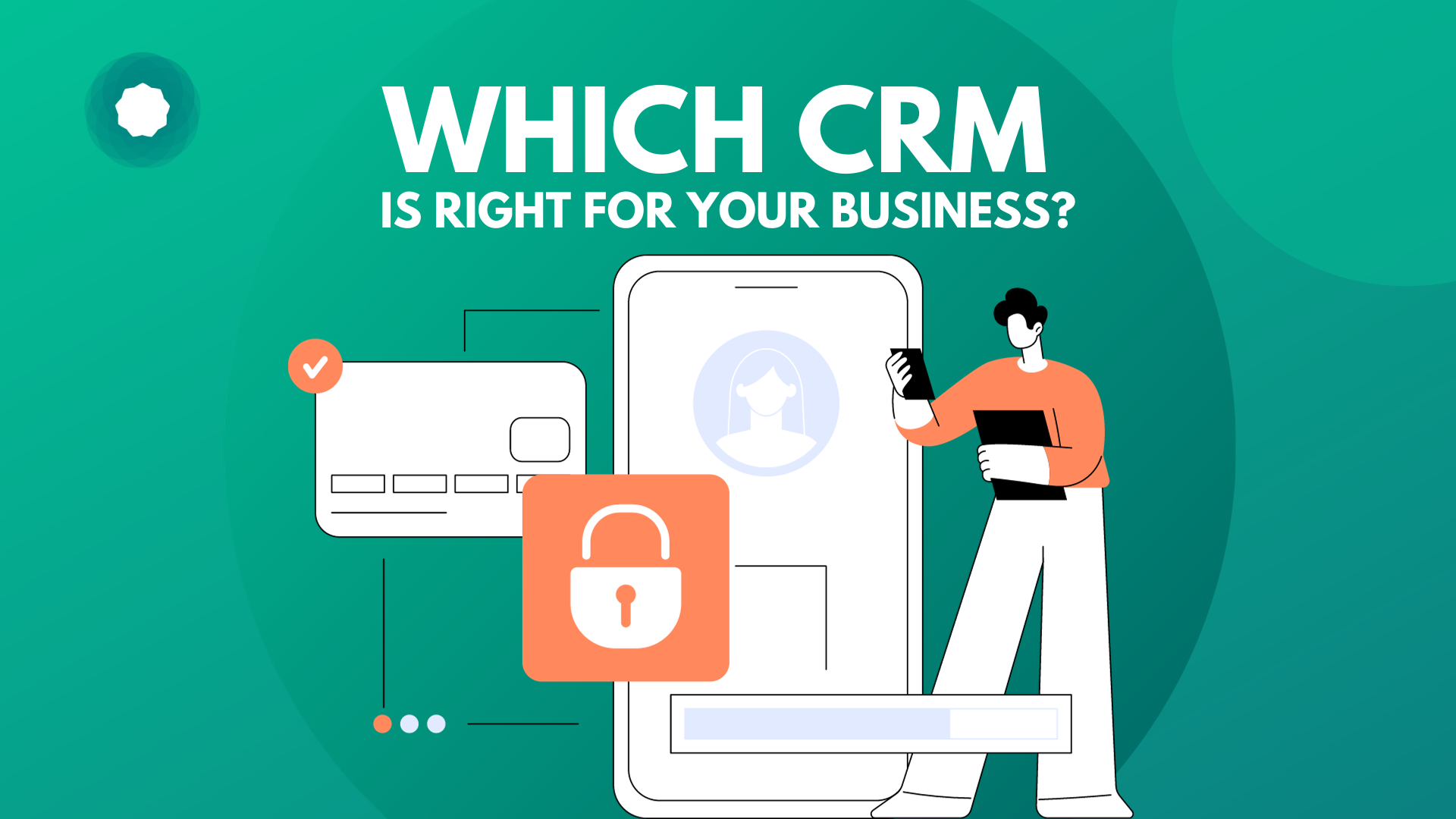
When it comes to managing your sales process, having the right tools is crucial. Two popular options for customer relationship management (CRM) are Hubspot and Zoho.
Both offer a range of features and benefits, but which one is the best fit for your business?
In this article, we’ll compare Hubspot and Zoho to help you make an informed decision.
Hubspot vs Zoho: What is a CRM?

Before we dive into the comparison, let’s first define what a CRM is. A CRM is a software tool that helps businesses manage their interactions with current and potential customers.
It allows you to track and organize customer data, manage sales processes, and improve customer relationships.
Key Features of a CRM
Some of the key features of a CRM include:
- Contact management: This feature allows you to store and organize customer information, such as contact details, communication history, and notes.
- Sales pipeline management: A CRM helps you track and manage your sales process, from lead generation to closing deals.
- Reporting and analytics: With a CRM, you can generate reports and analyze data to gain insights into your sales performance and make data-driven decisions.
- Email integration: Many CRMs offer email integration, allowing you to send and track emails directly from the CRM.
Hubspot vs Zoho: A Comparison

Now, let’s take a closer look at the features and benefits of Hubspot and Zoho to determine which one is the right fit for your business.
Pricing
Pricing is often a major factor when choosing a CRM. Hubspot offers a free version of its CRM, making it a great option for small businesses or those on a tight budget.
However, the free version has limited features and is only suitable for businesses with a small number of contacts.
Zoho, on the other hand, offers a range of pricing plans, starting from $12 per user per month.
While this may seem more expensive than Hubspot’s free version, Zoho’s plans offer more features and are better suited for larger businesses.
Contact Management
Both Hubspot and Zoho offer robust contact management features.
However, Hubspot’s interface is more user-friendly and intuitive, making it easier to navigate and manage contacts. Zoho’s interface can be overwhelming for some users, especially those who are new to CRMs.
Sales Pipeline Management
When it comes to managing your sales pipeline, Hubspot vs Zoho offer similar features. However, Hubspot’s pipeline view is more visually appealing and easier to use. Zoho’s pipeline view can be cluttered and difficult to navigate, especially if you have a large number of deals in progress.
Reporting and Analytics
Both Hubspot and Zoho (Zoho vs Hubspot) offer reporting and analytics features, allowing you to track and analyze your sales tools performance.
However, Hubspot’s reporting is more robust and offers more customization options. Zoho’s reporting is more limited and may not be suitable for businesses with complex reporting needs.
Email Integration
Email integration is an essential feature for any CRM. Both Hubspot and Zoho offer email integration, but Hubspot’s is more seamless and user-friendly.
Zoho’s email integration can be clunky and may require some technical knowledge to set up.
Which CRM is Right for Your Business?

Now that we’ve compared the key features of Hubspot and Zoho, let’s take a look at which one is the right fit for your business.
Choose Hubspot if:
- You’re a small business or on a tight budget: Hubspot’s free version is a great option for businesses with a small number of contacts and limited budget.
- You value user-friendly interfaces: Hubspot’s interface is more intuitive and user-friendly, making it a great option for businesses with non-technical users.
- You need robust reporting and analytics: Hubspot’s reporting and analytics features are more advanced and offer more customization options.
Choose Zoho if:
- You have a larger budget: Zoho’s plans may be more expensive than Hubspot’s free version, but they offer more features and are better suited for larger businesses.
- You have a large number of contacts: Zoho’s interface can be overwhelming for some users, but it’s better suited for businesses with a large number of contacts.
- You need advanced customization options: Zoho offers more customization options for its reporting and analytics features, making it a great option for businesses with complex reporting needs.
Ultimately, it is worth noting that both Zoho and Hubspot are excellent CRM Automation options. However, if a third alternative were accessible, I would consistently opt for CJPath CRM.
CJPath CRM is a powerful customer relationship management tool that offers a range of features to help businesses manage their sales process effectively. Here are some reasons why CJPath CRM may be considered a better option compared to Zoho and Hubspot:
- User-friendly interface: CJPath CRM provides a user-friendly interface that is easy to navigate, making it suitable for businesses of all sizes, including those with limited technical expertise.
- Affordable pricing: CJPath CRM offers competitive pricing plans that cater to businesses with different budget sizes. This makes it a cost-effective solution for businesses looking to implement a CRM system without breaking the bank.
- Advanced customization: CJPath CRM provides advanced customization options, allowing users to tailor the CRM system to their specific business needs. This level of customization ensures that businesses can maximize the benefits of the CRM software.
- Integration capabilities: CJPath CRM seamlessly integrates with other business tools and applications, such as email marketing software or project management tools. This integration enhances workflow efficiency and enables businesses to streamline their processes.
- Robust reporting and analytics: CJPath CRM offers comprehensive reporting and analytics features, providing businesses with valuable insights into their sales performance and customer behavior. This data-driven approach helps businesses make informed decisions and optimize their sales strategies.
While Zoho and Hubspot are popular CRM options, CJPath CRM may be a better fit for businesses seeking a user-friendly interface, affordability, advanced customization, integration capabilities, and robust reporting and analytics.
It's important to evaluate your specific business needs and consider these factors when choosing the right CRM for your business.
Both Hubspot and Zoho offer a range of features and benefits for managing your sales process.
Ultimately, the right CRM for your business will depend on your budget, business size, and specific needs.
Consider the key features and benefits of each CRM to determine which one is the best fit for your business.
With the right CRM, you can streamline your sales process and improve customer relationships, leading to increased sales and business growth.

